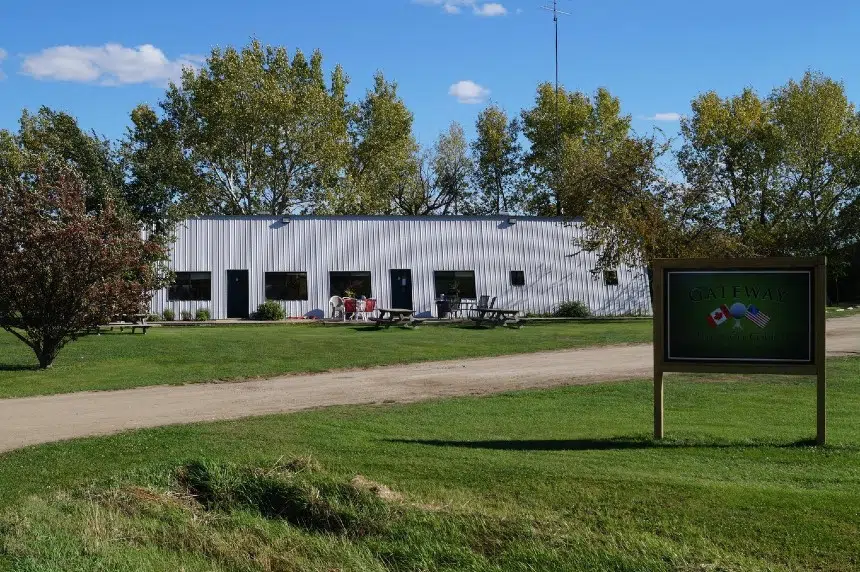Imagine being separated from family and friends by an invisible line and not being able to see them.
That has been the situation for people living in North Portal throughout the pandemic.
The small village is separated from Portal, N.D., by the Canada-United States border.
According to Mayor Kaylah Turner, there are quite a few people who are close with their neighbours on the other side. They haven’t been able to cross over, thanks to COVID-19 restrictions.
“People find it very heartbreaking that they’re so close, but they can’t give their family member or friend a nice, big hug,” she said.
They have been able to adapt a bit, but it hasn’t been quite the same.
“The one lucky thing was we have a couple of spots in town where people can park some lawn chairs and be able to visit with their family members on the North Dakota side. So we are lucky that there has been some face-to-face time, but obviously with some good distance between each other,” she explained.
“It has been a little bit of a tease.”
Callie Fair also lives in North Portal. Her aunt and uncle live on the American side.
“It has been pretty crazy, actually. My aunt is actually a teacher in Estevan, so she’s an essential worker and she can come up to teach, but she couldn’t come see any of us. That alone was hard,” she said.
Much like Turner, Fair has been able to work around it a bit.
“We would meet her at the border, sit in the ditches and visit with her and my uncle,” she said. “It has been something, anyway.”
She wishes officials had made an exception for the two towns during the pandemic.
“We’re just a border town, so it’s really unfortunate we can’t cross just between us,” she said.
But the times have changed. Fully vaccinated Americans are now allowed to come into Canada, as long as it has been 14 days since they got their second shot and they can provide a negative COVID test.
It isn’t perfect, but for Turner and Fair, it’s a move in the right direction.
“It feels really good, especially for my grandparents. They haven’t seen their daughter in over a year, so it’ll be really awesome for them,” Fair said.
Turner has a couple of friends who live on the American side of the border. While they still have COVID testing requirements up, she doubts they’ll just drop in for a quick visit.
“It is still a rigmarole to get back home. They’ll still have to do quick tests and stuff like that, so it would have to be a bit of an extended stay,” she said.
Canadians won’t be able to cross the land border to the U.S. for non-essential reasons until at least Aug. 21, when the current border restrictions are set to expire. However, the restrictions have been renewed on a month-by-month basis since the initial closure in March of 2020.







